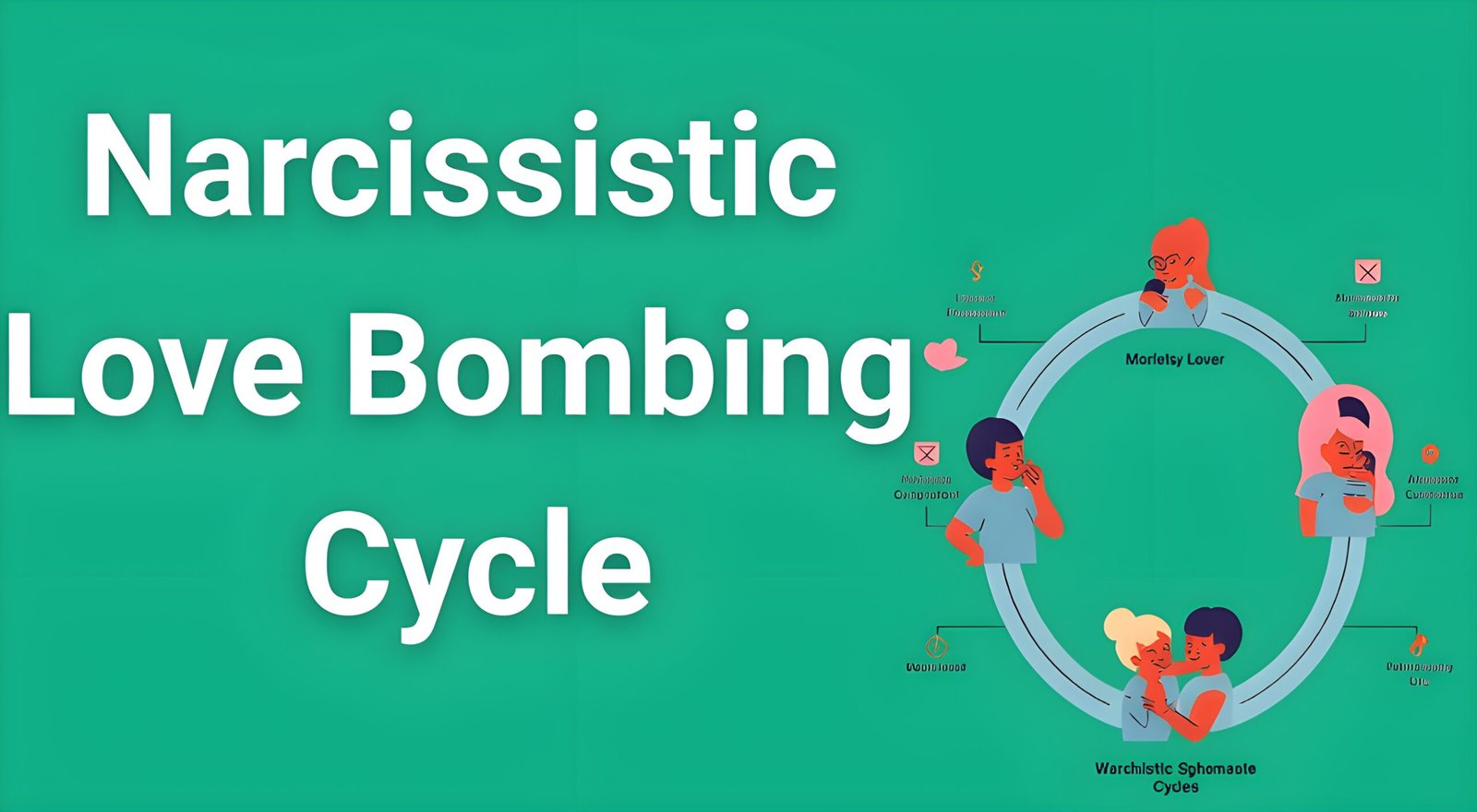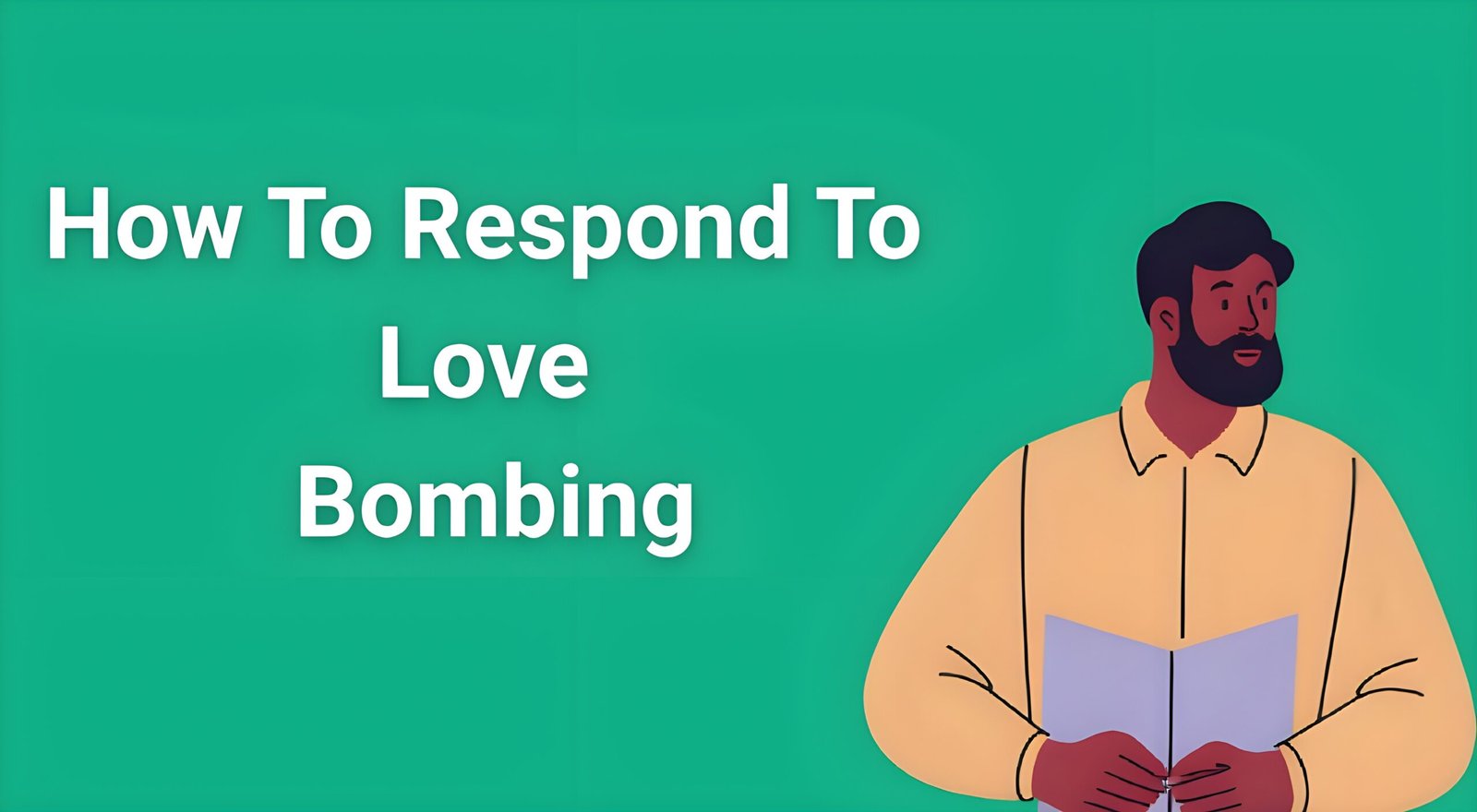Have you ever experienced a relationship that felt like a fairytale in the beginning, only to become your worst nightmare? If someone showered you with intense love and attention, then suddenly became cold, critical, or abusive, you may have been caught in the narcissistic love bombing cycle. This devastating pattern of manipulation affects millions of people worldwide, leaving them questioning their sanity and struggling to break free.
- What Is the Narcissistic Love Bombing Cycle?
- The Science Behind Love Bombing Manipulation
- Phase 1: Idealization – The Perfect Partner Mirage
- Phase 2: Devaluation – The Slow Destruction
- Phase 3: Discard – The Brutal Abandonment
- Phase 4: Hoovering – The False Hope Trap
- How Long Does the Narcissistic Love Bombing Cycle Last?
- The Psychological Damage of Love Bombing Cycles
- Breaking Free: Recovery Strategies That Work
- Red Flags: Early Warning Signs to Watch For
- Healing and Moving Forward
- Protecting Your Future: Never Again
- Frequently Asked Questions
- Conclusion: Your Freedom Starts Now
The narcissistic love bombing cycle is a calculated manipulation tactic used by individuals with narcissistic traits to gain control over their victims. Understanding this cycle isn’t just about recognizing toxic behavior – it’s about reclaiming your power and protecting yourself from emotional devastation.
What Is the Narcissistic Love Bombing Cycle?
The narcissistic love bombing cycle is a predictable pattern of behavior that unfolds in four distinct phases: idealization, devaluation, discard, and hoovering. This cycle represents one of the most dangerous forms of psychological manipulation because it creates powerful trauma bonds that are incredibly difficult to break.
During this cycle, narcissists systematically break down their victim’s sense of reality, self-worth, and independence. The intense highs and crushing lows create an addiction-like attachment that keeps victims trapped in the relationship long after they recognize it’s toxic.
Research reveals that the average duration of the love bombing phase is five-and-a-half months with narcissistic men and three-and-a-half months with narcissistic women, though some cases can extend up to six months or longer depending on the narcissist’s goals and the victim’s responses.
The Science Behind Love Bombing Manipulation
Love bombing isn’t just emotional manipulation – it’s neurological warfare. When someone showers you with excessive attention, gifts, and affection, your brain releases powerful chemicals including dopamine, serotonin, and oxytocin. These “feel-good” hormones create genuine feelings of euphoria and attachment.
Narcissists exploit this biological response by creating intense emotional highs followed by devastating lows. This intermittent reinforcement schedule – the same mechanism used in gambling addiction – creates powerful psychological dependence. Your brain literally becomes addicted to the narcissist’s attention, making it extremely difficult to leave even when you recognize the abuse.
The trauma bonding that results from this cycle can be stronger than cocaine addiction. That’s why willpower alone is never enough to break free – you’re fighting against rewired neural pathways that scream for the narcissist’s validation.
Phase 1: Idealization – The Perfect Partner Mirage
The idealization phase marks the beginning of the narcissistic love bombing cycle. During this stage, the narcissist presents themselves as your perfect soulmate, showering you with attention that feels too good to be true – because it is.
Warning Signs of the Idealization Phase:
Future Faking and Premature Commitment The narcissist talks about marriage, moving in together, or having children within weeks of meeting you. They create elaborate fantasies about your future together, making you feel like you’ve found “the one” before you’ve had time to truly know them.
Mirror, Mirror Manipulation They seem to share all your interests, values, and dreams. This isn’t coincidence – it’s calculated mirroring. Narcissists study their targets intensely, then reflect back exactly what they think you want to hear.
Excessive Communication Bombing Constant texts, calls, and messages become overwhelming. They demand immediate responses and become upset if you don’t reply quickly. This creates the illusion of intense connection while actually testing your boundaries.
Love Declaration Speed Proclamations of love come unusually fast – often within days or weeks. Phrases like “I’ve never felt this way about anyone” or “You’re my soulmate” are common manipulation tactics designed to bypass your logical thinking.
Isolation Through Intensity They want to spend every moment with you, gradually pulling you away from friends and family. They frame this as romantic devotion, but it’s actually strategic isolation.
The Neurochemical High
During idealization, your brain is flooded with attachment chemicals. The narcissist’s intense attention activates your reward centers, creating genuine feelings of euphoria and love. This biological response makes the manipulation feel completely real and authentic.
The problem is that narcissists can’t maintain this level of performance indefinitely. The mask always slips, leading to the devastating next phase.
Phase 2: Devaluation – The Slow Destruction
The devaluation phase represents the narcissist’s true nature emerging. After securing your emotional attachment during idealization, they gradually reveal their cruel, controlling, and abusive characteristics. This phase can be the most psychologically damaging because of the stark contrast with the love bombing that preceded it.
Tactics Used During Devaluation:
Gaslighting and Reality Distortion The narcissist begins questioning your memory, perceptions, and sanity. They deny things they said or did, claim you’re “too sensitive,” and gradually erode your confidence in your own reality.
Criticism Escalation The same qualities they once praised become targets for criticism. Your independence becomes “selfishness,” your success becomes “showing off,” and your concerns become “overreaction.”
Hot and Cold Treatment Affection becomes unpredictable. One day they’re loving, the next they’re cold and distant. This intermittent reinforcement strengthens the trauma bond by creating desperate hope for the return of the idealization phase.
Triangulation and Comparison They introduce third parties to create jealousy and insecurity. They may compare you unfavorably to exes, friends, or even strangers, making you feel inadequate and replaceable.
Withholding and Stonewalling Emotional withdrawal becomes a weapon. They withhold affection, communication, or intimacy as punishment for perceived slights, leaving you desperately trying to win back their approval.
The Psychological Impact
Devaluation creates severe cognitive dissonance. Your brain struggles to reconcile the loving partner from the idealization phase with the cruel person now abusing you. This internal conflict leads to:
- Constant self-doubt and confusion
- Desperate attempts to “fix” the relationship
- Accepting blame for the narcissist’s behavior
- Loss of personal identity and self-worth
- Isolation from support systems
- Development of anxiety and depression
The devaluation phase can last months or even years, slowly destroying your sense of self while strengthening your emotional dependence on the narcissist.
Phase 3: Discard – The Brutal Abandonment
The discard phase occurs when the narcissist no longer sees value in maintaining the relationship with you. This abandonment can be sudden and shocking, or it can be a gradual withdrawal that leaves you feeling increasingly invisible and unwanted.
Types of Narcissistic Discard:
The Sudden Exit The narcissist abruptly ends the relationship with little to no explanation. They may disappear completely, block your communication, or simply announce they’re done without giving you a chance to respond.
The Replacement Discard They openly flaunt a new partner, making it clear you’ve been replaced. This cruel tactic is designed to maximize your pain and make you feel completely worthless.
The Emotional Discard While physically present, they become emotionally unavailable. They treat you like you don’t exist, showing no interest in your thoughts, feelings, or wellbeing.
The Blame and Shame Discard They end things by making everything your fault. You’re painted as the problem, the abuser, or the one who “ruined” the relationship.
The Devastating Aftermath
The discard phase leaves victims reeling with intense emotions:
Trauma and Shock The sudden shift from love to abandonment creates genuine trauma. Your nervous system goes into survival mode, triggering fight, flight, or freeze responses.
Self-Blame and Rumination You replay every interaction, convinced that you must have done something wrong. The narcissist’s conditioning makes you believe you’re at fault for the relationship’s failure.
Identity Crisis After months or years of having your reality questioned, you may no longer know who you are or what you believe. The narcissist has systematically dismantled your sense of self.
Desperate Attempts to Reconnect Many victims find themselves begging the narcissist to return, promising to change or do better. This reaction is a natural response to trauma bonding, not a sign of weakness.
Phase 4: Hoovering – The False Hope Trap
Hoovering, named after the vacuum cleaner brand, refers to the narcissist’s attempt to “suck” you back into the relationship after the discard phase. This phase is often the most confusing because it can feel like the return of the person you originally fell in love with.
Common Hoovering Tactics:
The Apology Campaign Suddenly, they’re full of remorse and promises to change. They acknowledge their mistakes and swear things will be different this time. These apologies often feel incredibly sincere but rarely lead to lasting change.
Crisis and Emergency Hoovering They reach out during a crisis, claiming they need your support. They may fake illness, job loss, or family emergencies to trigger your compassion and pull you back in.
Nostalgic Manipulation They remind you of the good times, sharing old photos or bringing up happy memories. They focus on the idealization phase, conveniently ignoring the abuse that followed.
Jealousy Induction They may flaunt new relationships or success to make you feel jealous and want them back. They’re essentially advertising what you’re “missing” by not being with them.
The Changed Person Act They claim to have gotten therapy, found religion, or experienced some life-changing revelation. They present themselves as a new and improved version, but the changes are typically superficial.
Why Hoovering Works
Hoovering is often successful because:
- Trauma Bond Activation: Your addiction to the narcissist is still strong
- Hope for Change: You desperately want to believe they can change
- Sunk Cost Fallacy: You’ve invested so much in the relationship
- Cognitive Dissonance: Your brain seeks resolution to the confusion
- Love Remains: Despite the abuse, you still have feelings for them
The Recycling Trap
If hoovering succeeds, the narcissistic love bombing cycle begins again – but with important differences:
- The idealization phase is typically shorter
- The devaluation phase may be more severe
- Your boundaries have been further eroded
- The discard becomes more predictable
- Each cycle causes greater psychological damage
How Long Does the Narcissistic Love Bombing Cycle Last?
The duration of each phase varies significantly based on multiple factors, but research provides some insights into typical timelines:
Idealization Phase Duration:
- Average: 3.5-5.5 months
- Range: 2 weeks to 2+ years
- Male narcissists: Average 5.5 months
- Female narcissists: Average 3.5 months
Devaluation Phase Duration:
- Can last months to years
- Often the longest phase
- Intensity increases over time
- May overlap with discard preparation
Discard Phase Duration:
- Can be instantaneous or gradual
- May last weeks to months
- Sometimes permanent, sometimes temporary
Hoovering Timing:
- Can happen immediately or years later
- Often triggered by your healing progress
- May coincide with the narcissist’s other relationships ending
Factors Affecting Cycle Duration:
Narcissist’s Goals If they want something specific (money, status, children), they may extend the idealization phase until they achieve their objective.
Target’s Resistance Strong boundaries or therapy may accelerate the cycle as the narcissist realizes you’re becoming harder to control.
External Circumstances Work stress, family pressure, or other relationships may influence how long each phase lasts.
Type of Narcissism Grandiose narcissists may move quickly, while covert narcissists often take longer to reveal their true nature.
The Psychological Damage of Love Bombing Cycles
The narcissistic love bombing cycle creates severe and lasting psychological trauma that can take years to heal. Understanding these effects is crucial for recognizing why recovery feels so difficult and why professional help is often necessary.
Complex Trauma Development
Unlike single-incident trauma, the love bombing cycle creates complex trauma through repeated psychological assault. Victims experience:
Emotional Dysregulation Your nervous system becomes hypervigilant, constantly scanning for threats. You may experience panic attacks, anxiety, or depression as your body struggles to process the ongoing stress.
Cognitive Disruption Gaslighting and manipulation damage your ability to trust your own thoughts and perceptions. Decision-making becomes paralyzed by self-doubt and confusion.
Attachment Wounds The cycle damages your ability to form healthy relationships. You may become hypervigilant about abandonment or struggle to trust new partners.
Identity Fragmentation After having your reality constantly questioned, you may lose touch with who you really are. Your preferences, values, and goals become unclear.
Post-Traumatic Stress Response
Many survivors develop symptoms similar to PTSD:
- Intrusive thoughts about the narcissist
- Hypervigilance in relationships
- Emotional numbing or overwhelming emotions
- Sleep disturbances and nightmares
- Physical symptoms like headaches or digestive issues
The Addiction Component
The intermittent reinforcement of the cycle creates genuine addiction-like symptoms:
- Cravings for the narcissist’s attention
- Withdrawal symptoms when separated
- Inability to stop thinking about them
- Relapse despite knowing the relationship is toxic
Breaking Free: Recovery Strategies That Work
Escaping the narcissistic love bombing cycle requires more than willpower – it demands a comprehensive approach that addresses the neurological, psychological, and practical aspects of recovery.
Understanding Your Trauma Bond
The first step in breaking free is recognizing that your attachment to the narcissist isn’t love – it’s trauma bonding. This addiction-like connection was deliberately created through manipulation and won’t simply disappear because you understand it logically.
Your brain has been rewired to crave the narcissist’s validation. Every time you resist contacting them, you experience genuine withdrawal symptoms. Understanding this helps you approach recovery with compassion for yourself rather than self-judgment.
The No-Contact Rule
No contact is often the only way to break the cycle and begin healing. This means:
- Blocking them on all social media platforms
- Changing your phone number if necessary
- Avoiding places where you might encounter them
- Not responding to any attempts at communication
- Having someone else handle necessary legal or co-parenting communications
Professional Support
Recovery from narcissistic abuse often requires professional help from therapists trained in trauma recovery. Look for specialists in:
- Narcissistic abuse recovery
- Complex trauma treatment
- EMDR or somatic therapies
- Attachment-focused therapy
Neurological Rewiring Techniques
Since trauma bonding changes your brain, healing requires deliberate rewiring:
- Mindfulness and meditation practices
- Regular exercise to regulate mood
- Journaling to process emotions
- Somatic therapies to release trauma from the body
- Cognitive behavioral techniques to challenge distorted thinking
Building Your Support Network
Isolation is a key component of narcissistic abuse. Rebuilding connections with trusted friends and family is essential for recovery. Consider joining support groups for narcissistic abuse survivors who understand what you’ve experienced.
Practical Safety Planning
If you’re planning to leave or have recently left, create a safety plan:
- Document abuse with photos, texts, or recordings
- Secure important documents and finances
- Identify safe places to stay
- Inform trusted contacts about your situation
- Consider legal protections if necessary
Red Flags: Early Warning Signs to Watch For
Learning to recognize the early warning signs of the narcissistic love bombing cycle can protect you from future manipulation. These red flags often appear during the idealization phase but are easy to miss when you’re caught up in the excitement of a new relationship.
Intensity Red Flags:
- Professions of love within days or weeks
- Pressuring for commitment or exclusivity immediately
- Wanting to spend all your time together
- Excessive gift-giving or grand gestures
- Making major future plans before you’re ready
Boundary Testing Red Flags:
- Getting angry when you say no or set limits
- Showing up uninvited to your home or work
- Pressuring you to share personal information quickly
- Isolating you from friends and family
- Monitoring your activities or communications
Control Red Flags:
- Making decisions for you without asking
- Criticizing your friends, family, or interests
- Managing your finances or schedule
- Demanding access to your phone or social media
- Using guilt or manipulation when you assert independence
Empathy Red Flags:
- Showing little interest in your feelings or experiences
- Making everything about themselves
- Lacking genuine remorse when they hurt you
- Being unable to see your perspective
- Dismissing your concerns as oversensitivity
Healing and Moving Forward
Recovery from the narcissistic love bombing cycle is possible, but it requires patience, self-compassion, and often professional support. Healing isn’t linear – you’ll have good days and difficult days as your brain rewires itself and you rebuild your sense of self.
Phases of Recovery:
Crisis and Stabilization (0-3 months) Focus on basic safety and stabilization. Your nervous system is in crisis mode, so gentle self-care and professional support are essential.
Processing and Understanding (3-12 months)
Begin to process the relationship and understand how the manipulation worked. This phase often involves grief, anger, and confusion as you work through complex emotions.
Rebuilding and Integration (1-2+ years) Gradually rebuild your identity, relationships, and life goals. Learn to trust yourself again and develop healthy relationship skills.
Thriving and Prevention (2+ years) Develop confidence in your ability to recognize and avoid toxic relationships. Many survivors become advocates, helping others recognize and escape similar situations.
Self-Care During Recovery:
- Practice radical self-compassion
- Maintain consistent sleep and nutrition
- Engage in gentle physical activity
- Limit exposure to triggering content
- Build a routine that supports stability
- Celebrate small victories in healing
When to Seek Professional Help
Consider professional support if you experience:
- Persistent thoughts of self-harm
- Inability to function in daily life
- Substance abuse as coping mechanism
- Severe anxiety or depression
- Difficulty maintaining other relationships
- Repeated patterns of toxic relationships
Remember: Seeking help isn’t a sign of weakness – it’s a sign of strength and self-preservation.
Protecting Your Future: Never Again
Once you’ve experienced the narcissistic love bombing cycle, protecting yourself from future manipulation becomes crucial. The patterns that made you vulnerable before may still exist, making you a target for other predators.
Developing Healthy Relationship Skills:
Trust Your Instincts If something feels too good to be true or makes you uncomfortable, pay attention to those feelings. Your intuition is often the first warning system.
Maintain Your Independence Healthy relationships enhance your life – they don’t consume it. Keep your own friends, hobbies, and goals regardless of how wonderful a new partner seems.
Set Clear Boundaries Practice saying no and enforcing your limits from the beginning of any relationship. Watch how potential partners respond to your boundaries.
Take Things Slowly Resist pressure to move quickly in relationships. Healthy love develops gradually with mutual respect and understanding.
Stay Connected Don’t isolate yourself from friends and family for anyone. Healthy partners will encourage your other relationships.
Building Emotional Intelligence:
- Learn to recognize and name your emotions
- Develop coping skills for difficult feelings
- Practice self-soothing techniques
- Build distress tolerance
- Strengthen your sense of self-worth
Creating Your Personal Protection Plan:
Document your non-negotiable relationship standards and refer to them regularly. Include:
- How you want to be treated
- Behaviors you won’t tolerate
- Warning signs you’ll watch for
- Steps you’ll take if red flags appear
- Support people you can call for perspective
Frequently Asked Questions
Q: How can I tell if I’m being love bombed or if someone genuinely loves me?
A: Genuine love develops gradually with consistent behavior over time. Love bombing is typically intense, rushed, and focused on overwhelming you with attention. Trust your gut – if it feels too intense too fast, it probably is.
Q: Why do I keep going back to someone who treats me badly?
A: You’re likely experiencing trauma bonding, which creates addiction-like attachment through intermittent reinforcement. Your brain becomes addicted to the highs and lows, making it extremely difficult to leave without proper support and recovery techniques.
Q: Can narcissists change if they get therapy?
A: While change is theoretically possible, it’s extremely rare for narcissists to genuinely change because they typically lack the self-awareness and empathy required for meaningful transformation. Most therapy attempts are manipulation tactics or superficial changes that don’t last.
Q: How long does it take to recover from narcissistic abuse?
A: Recovery timelines vary greatly depending on the duration and severity of abuse, your support system, and whether you receive professional help. Many survivors see significant improvement within 1-2 years, but full healing can take longer.
Q: Should I warn the narcissist’s new partner?
A: This is generally not recommended as it can put you at risk of harassment and may not be believed. Focus on your own healing instead. The new person will need to discover the truth themselves.
Q: What if we have children together and I can’t go no contact?
A: In cases involving children, you’ll need “gray rock” or minimal contact strategies. Work with a therapist experienced in narcissistic abuse and consider legal protection if necessary. Your children’s safety comes first.
Q: Will I ever be able to have a healthy relationship again?
A: Yes, with proper healing and support, many survivors go on to have fulfilling, healthy relationships. The key is doing the inner work to heal your trauma and develop strong boundaries and self-worth.
Conclusion: Your Freedom Starts Now
The narcissistic love bombing cycle is one of the most devastating forms of psychological manipulation, designed to trap victims in cycles of abuse that can last for years. Understanding the four phases – idealization, devaluation, discard, and hoovering – is the first step toward breaking free and reclaiming your life.
Remember that falling for love bombing doesn’t make you weak, naive, or stupid. Narcissists are skilled manipulators who exploit normal human desires for love and connection. They deliberately create trauma bonds that hijack your brain’s reward system, making escape feel impossible even when you logically understand the abuse.
Recovery from narcissistic abuse is possible, but it requires more than willpower – it demands a comprehensive approach that addresses the neurological, psychological, and practical aspects of healing. With proper support, self-compassion, and time, you can break free from the cycle and build the healthy, authentic life you deserve.
If you’re currently trapped in a narcissistic love bombing cycle, know that you’re not alone and help is available. Trust yourself, reach out for support, and take the first step toward freedom. Your healing journey starts with a single decision to choose yourself over the person who has been destroying you.
You deserve love that doesn’t hurt. You deserve relationships built on respect, not control. Most importantly, you deserve to reclaim your power and never again fall victim to the narcissistic love bombing cycle.
Your freedom is possible. Your healing is valid. Your life is worth fighting for.
If you’re struggling to break free from a narcissistic love bombing cycle and need immediate clarity about your situation, consider getting a comprehensive analysis from specialists who understand exactly what you’re experiencing. Breaking these patterns requires more than willpower – it requires understanding the specific manipulation tactics being used against you and developing a personalized escape strategy.






